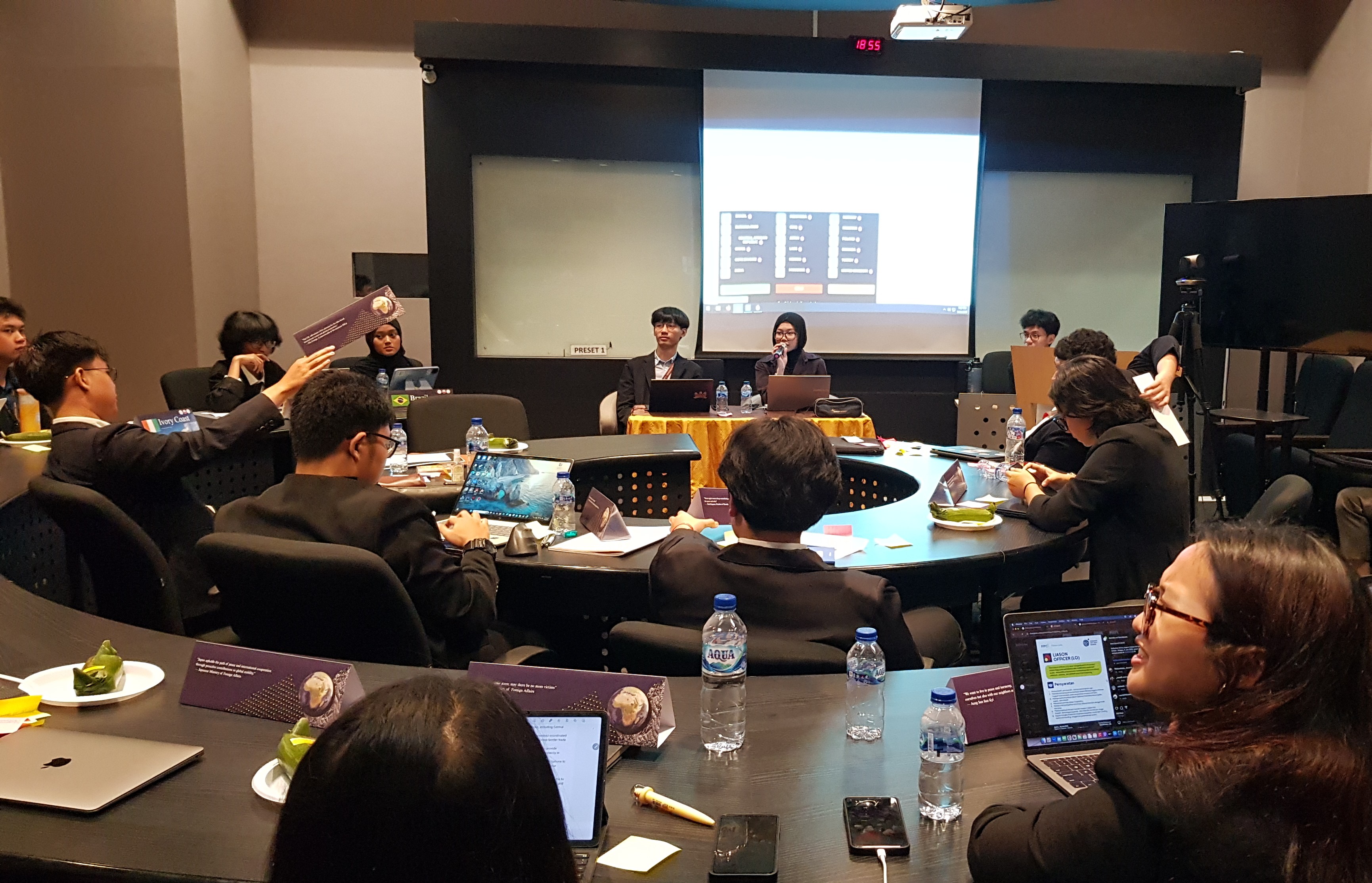HIMHI organized a MUN simulation in Collaboration With BIRDS
Jakarta – International Relations Model United Nations (MUN) Simulation has been successfully implemented as a collaboration between HIMHI and BIRDS. We organized the MUN Simulation event on Wednesday, May 28, 2025, from 3:00 PM to 7:00 PM in Room A0907, BINUS @ Alam Sutera Campus.

Model United Nations (MUN) is a role-play activity of the United Nations (UN) where students act like diplomats from different countries and discuss world issues. Each MUN event has its theme and topic, based on the UN committee being simulated. Participants join formal debates, write resolutions, and negotiate with others to solve global problems. It’s a great way to learn public speaking, critical thinking, and teamwork.
For our MUN event, we chose “Addressing Forced Child Labor in a Global Scope,” using the International Labour Organization (ILO) as the committee. We picked this topic because child labor is still a big problem around the world, especially in developing countries. Through this MUN, we want to better understand the causes, effects, and possible solutions to child labor by exploring it through diplomacy and international cooperation.
The event began with remarks from the Chair of the IR MUN Simulation HIMHI x BIRDS Arya Putra Ananta, Secretary-General of BIRDS Edward J. Nathan, Vice Chair of HIMHI Raisha Nursyarifa, and Head of International Relations Global Class, Ms. Paramitaningrum.
This MUN simulation was attended by 20 delegates representing various countries in the International Labour Organization (ILO) council and conducted in two committee sessions. Two chairs guided the simulation session, Amalya Putri Sanira and Okta Widhyadana. The simulation ran smoothly, as each delegate was very active in discussions, proposing motions, and drafting resolutions. The event ended with an awarding session.

Through this MUN, we aim to raise awareness and propose realistic steps to protect children’s rights and ensure their access to education and a safe childhood. This topic also helps develop empathy, critical thinking, and negotiation skills, key traits for future leaders and diplomats.

